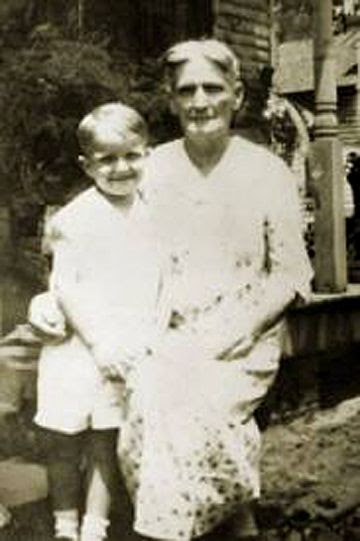I subscribe to surprisingly few online things. delancyplace.com is one of them. This is what they sent me on November 30th. – Indy Beagle
Seven-year-old Truman Capote, abandoned by his divorced parents, is taken in by depression-poor cousins in the rural South.
One of these cousins, a distant, elderly cousin, becomes his closest friend and only refuge — but she is only in his life for two more short years. As Christmas approaches, they make fruitcakes as presents for people they barely know:
“Imagine a morning in late November. A coming-of-winter morning more than twenty years ago. Consider the kitchen of a spreading old house in a country town. A great black stove is its main feature; but there is also a big round table and a fireplace with two rocking chairs placed in front of it. Just today the fireplace commenced its seasonal roar.
“A woman with shorn white hair is standing at the kitchen window. She is wearing tennis shoes and a shapeless gray sweater over a summery calico dress. She is small and sprightly, like a bantam hen; but, due to a long youthful illness, her shoulders are pitifully hunched. Her face is remarkable — not unlike Lincoln’s, craggy like that, and tinted by sun and wind; but it is delicate too, finely boned, and her eyes are sherry-colored and timid. ‘Oh my,’ she exclaims, her breath smoking the windowpane, ‘it’s fruitcake weather!’
“The person to whom she is speaking is myself. I am seven; she is sixty-something. We are cousins, very distant ones, and we have lived together — well, as long as I can remember. Other people inhabit the house, relatives; and though they have power over us, and frequently make us cry, we are not, on the whole, too much aware of them. We are each other’s best friend. She calls me Buddy, in memory of a boy who was formerly her best friend. The other Buddy died in the 1880’s, when she was still a child. She is still a child. …
“The black stove, stoked with coal and firewood, glows like a lighted pumpkin. Eggbeaters whirl, spoons spin round in bowls of butter and sugar, vanilla sweetens the air, ginger spices it; melting, nose-tingling odors saturate the kitchen, suffuse the house, drift out to the world on puffs of chimney smoke. In four days our work is done. Thirty-one cakes, dampened with whiskey, bask on window sills and shelves.
“Friends. Not necessarily neighbor friends: indeed, the larger share are intended for persons we’ve met maybe once, perhaps not at all. People who’ve struck our fancy. Like President Roosevelt. Like the Reverend and Mrs. J. C. Lucey, Baptist missionaries to Borneo who lectured here last winter. Or the little knife grinder who comes through town twice a year. Or Abner Packer, the driver of the six o’clock bus from Mobile, who exchanges waves with us every day as he passes in a dust-cloud whoosh. Or the young Wistons, a California couple whose car one afternoon broke down outside the house and who spent a pleasant hour chatting with us on the porch (young Mr. Wiston snapped our picture, the only one we’ve ever had taken). Is it because my friend is shy with everyone except strangers that these strangers, and merest acquaintances, seem to us our truest friends? I think yes. Also, the scrapbooks we keep of thank-you’s on White House stationery, time-to-time communications from California and Borneo, the knife grinder’s penny post cards, make us feel connected to eventful worlds beyond the kitchen with its view of a sky that stops. …
“[And then when Christmas morning finally comes, while the rest of the house still sleeps, a voice:] ‘Buddy, are you awake?’ It is my friend, calling from her room, which is next to mine; and an instant later she is sitting on my bed holding a candle. ‘Well, I can’t sleep a hoot,’ she declares. ‘My mind’s jumping like a jack rabbit. Buddy, do you think Mrs. Roosevelt will serve our cake at dinner?’ We huddle in the bed, and she squeezes my hand I-love-you.”
